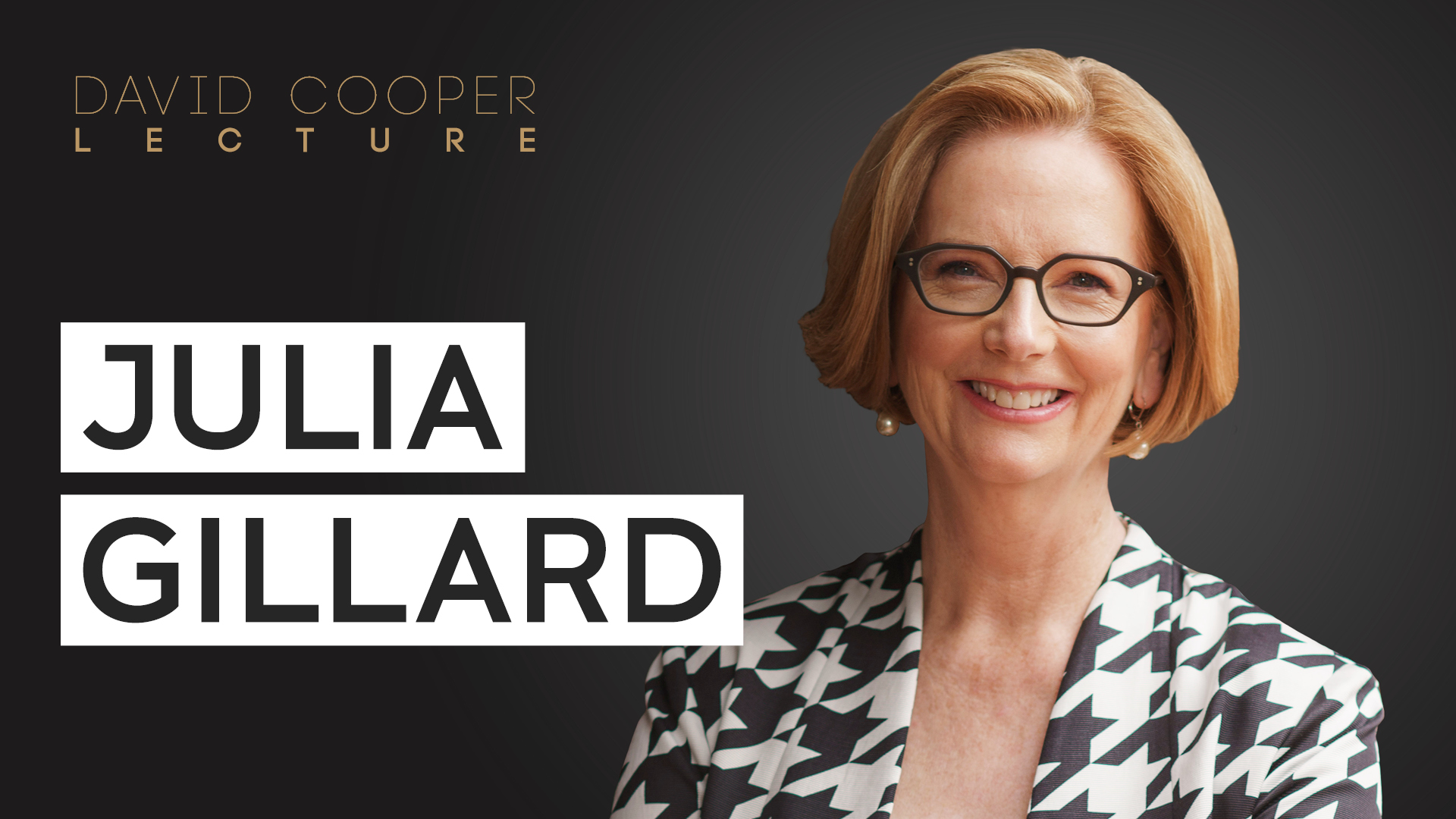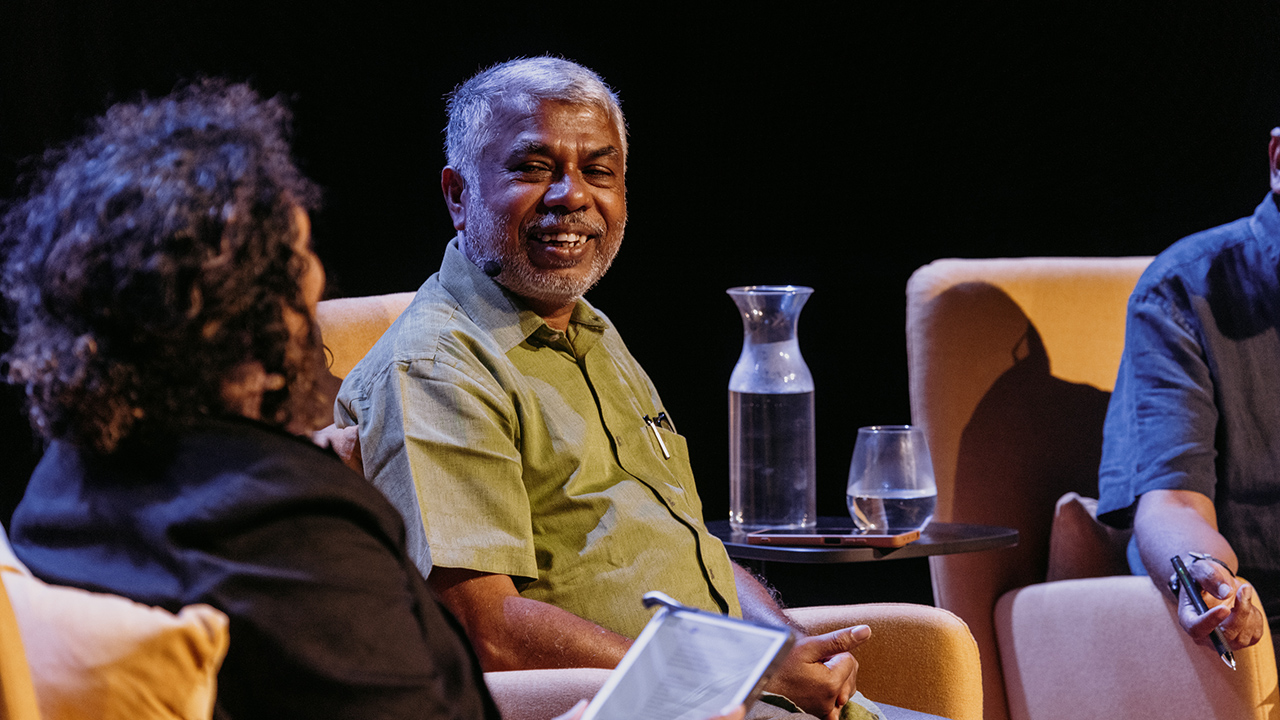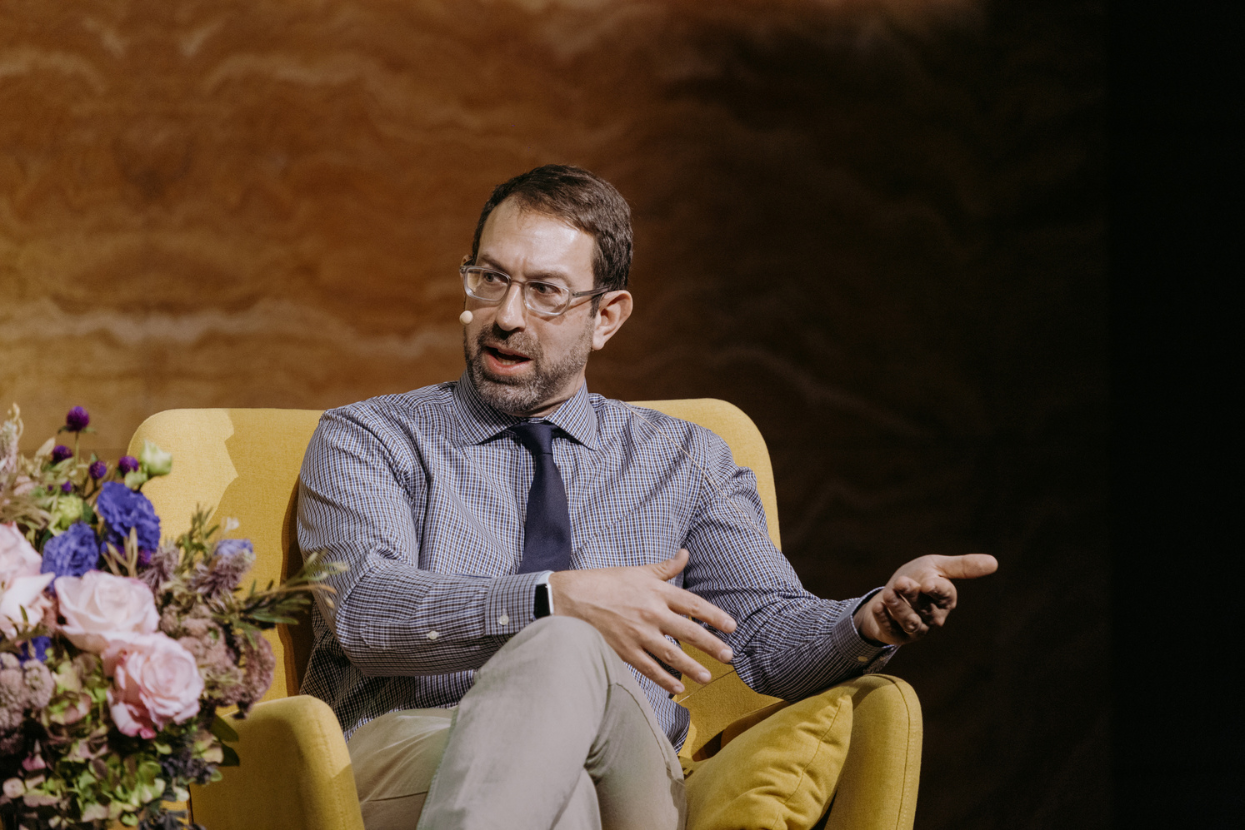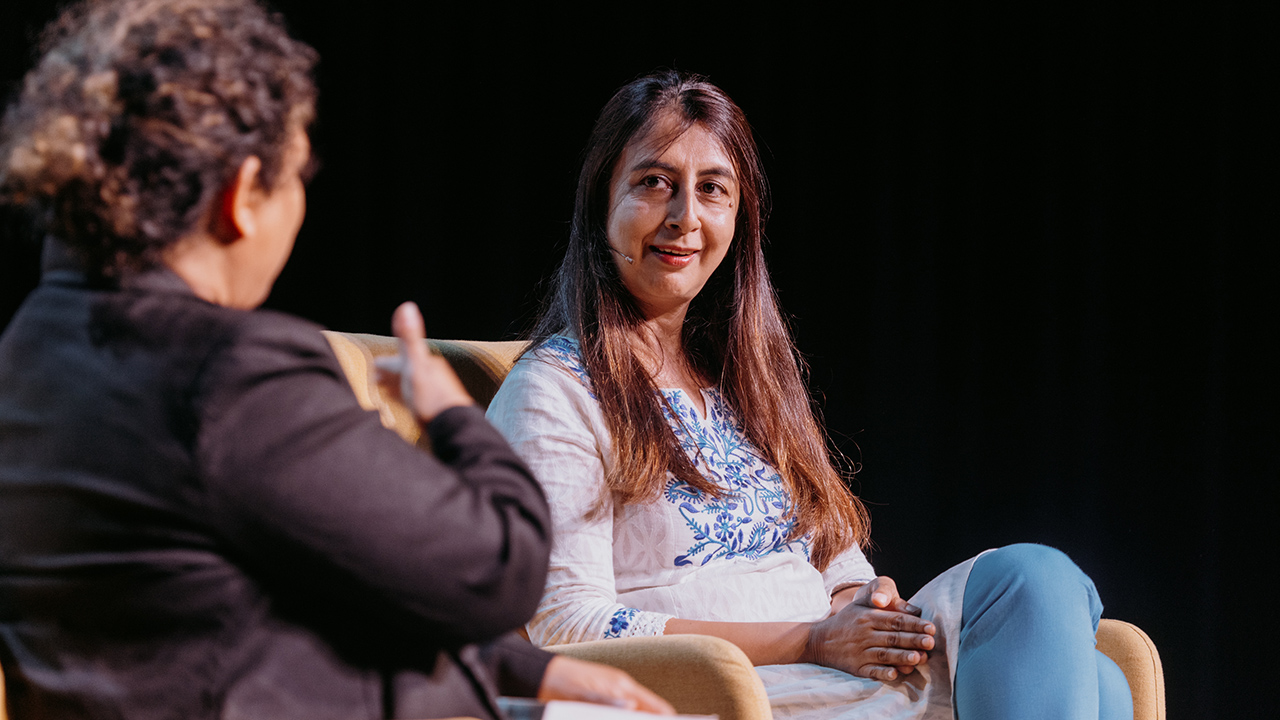David Cooper Lecture | Julia Gillard in conversation with Tegan Taylor
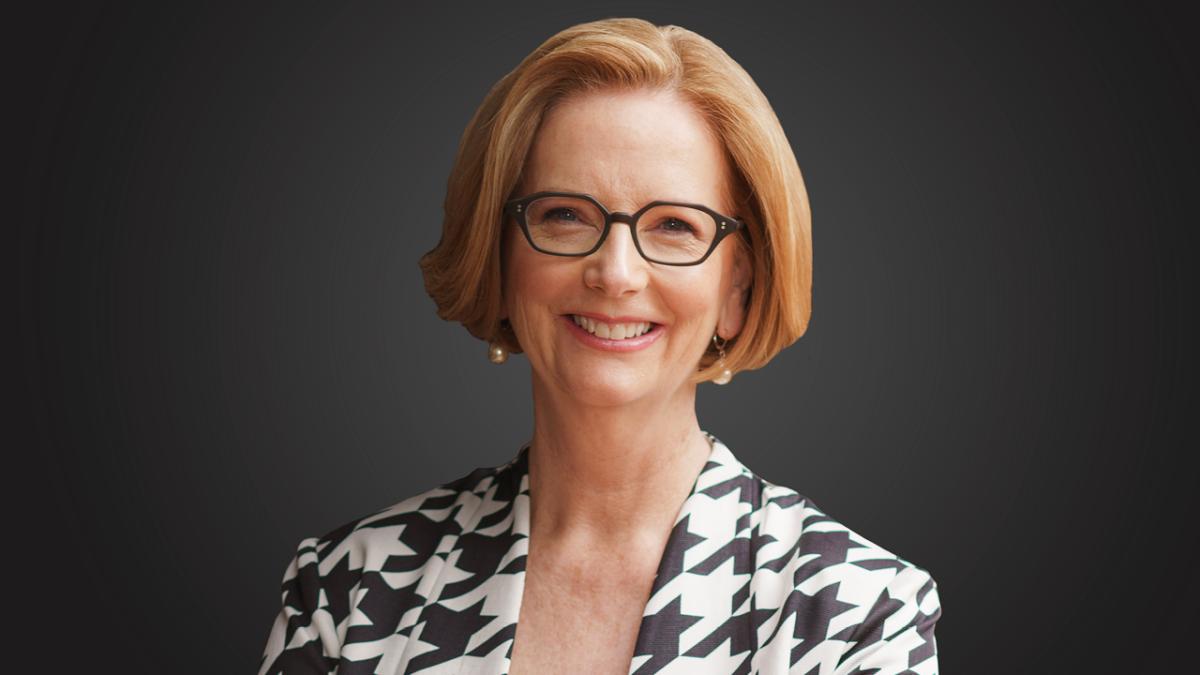
I view the pandemic as putting itself over pre-existing patterns of disadvantage, and what we want to do as a global community – as an Australian community – is to eradicate that disadvantage.
Globally, we have learnt many lessons from the pandemic - that public health shouldn’t be politicised, that we cannot stop COVID-19 without a global response, and that the cracks of inequality between nations and among populations have become impossible to ignore.
COVID-19 has also posed particular challenges for women, and had significant impacts on mental health. The last two years have demonstrated that when necessary, the global community can swiftly enact policy that truly helps those in need, and stops our most vulnerable from falling through the cracks. How can we use what we have learnt from over the last two years to ensure we emerge a healthier and fairer society?
Former Prime Minister Julia Gillard is now the Chair of the Wellcome Trust, a not-for-profit global organisation that supports science to solve urgent health challenges equitably. She joins journalist Tegan Taylor for an evening of conversation exploring how to leverage science and make advances in health available to everyone.
Presented by the UNSW Centre for Ideas, Kirby Institute and UNSW Medicine & Health.
ABOUT THE DAVID COOPER LECTURE
The David Cooper Lecture honours the legacy of the Kirby Institute’s Founding Director. Professor David Cooper AC, who passed away in 2018, was an internationally renowned scientist and HIV clinician, who laid the foundations for Australia’s ongoing global leadership in the fight against the global HIV epidemic.
To make a donation to support David Cooper’s incredible vision for equitable access to healthcare visit unsw.to/DavidCooperMemorialFund.
Transcript
Ann Mossop: Welcome to the UNSW Centre for Ideas podcast. A place to hear ideas from the world's leading thinkers and UNSW Sydney's brightest minds. I'm Ann Mossop, director of the UNSW Centre for Ideas. This podcast was recorded on the lands of Bidjigal and Gadigal people. We pay our respects to their elders past and present, whose sovereignty was never ceded. The conversation you're about to hear, The 2022 David Cooper Lecture, is between Julia Gillard and Tegan Taylor, and was recorded live. I hope you enjoy the conversation.
Tegan Taylor: Welcome to The 2022 David Cooper Lecture, with the honourable Julia Gillard A.C, 27th, Prime Minister of Australia. My name is Tegan Taylor, and I'm a health and science journalist at the ABC. Julia, thanks for joining us.
Julia Gillard: It's terrific to be with you. Thank you.
Tegan Taylor: So, Wellcome’s mission talks about addressing urgent worldwide health challenges. And we can't talk about that without talking about the pandemic. Why do infectious diseases disproportionately affect the most disadvantaged in society? And what does that mean for how we respond to them?
Julia Gillard: Well, certainly the pandemic has had the biggest impact on the most disadvantaged in the world. Because we're here in Australia and we've had good access to vaccines, it's easy to forget that in many parts of the world, people are still waiting to be vaccinated. Even those who are at most risk of catastrophic health consequences from COVID, have not yet been reached by vaccines. So unfortunately, we know that in the health response, there has been an inequity in vaccine access, and we know in societies around the world too, that those who get the most urgent access to care are often those with the most information and the most resources. So I view the pandemic as putting itself over pre-existing patterns of disadvantage. And what we want to do, as the global community, as an Australian community, is to eradicate that disadvantage because that's the right thing to do always. It's also the right thing for pandemic preparedness.
Tegan Taylor: Do you think COVID-19 has made us a more equitable society in any way, though? It has certainly highlighted the inequities.
Julia Gillard: It has, and I think whether we use this as a bit of a wake up call about inequities is in some way still to be determined. But I think we're having a number of the right debates coming out of this, a debate about global health inequities, a debate about local health inequities. We're talking about mental health, which is good. We're talking about the circumstances of women. We know that of course, COVID is a disease that has disproportionately killed men. But when there were long lockdowns, it was women that had to step up to the extra domestic burdens, because of lockdowns, and particularly homeschooling. And I think it's been a reminder too, about who really keeps our societies running when it gets hard. And we know now they're the workers on the front line, the people who we often undervalue and don't give us as much respect to as we should, those who keep our health systems turning over, our transport and logistics systems. They've been absolutely vital to us in the pandemic, as have police officers, and teachers, and so I hope we take out of it a new sense of appreciation for their work.
Tegan Taylor: And that's sort of how Wellcome frames its work, it's to benefit everyone. Health has to be improved for everyone, which was very much David Cooper's ethos, as well, that medical research and discoveries really need to be available to all, and I wonder how that perspective motivated you to take on your role as chair at Wellcome.
Julia Gillard: Well, I'm most assuredly not a scientist, and I'm not a health professional. I joke when I'm in the Wellcome office in London, that I am not going to try and match my high school chemistry and physics, with all of the experts that I'm surrounded by. But I am someone who's always believed that evidence should matter to public policy. And Wellcome is there funding scientific research, and we focus under our new strategy on discovery research, curiosity driven science, but also on challenge areas, three of them infectious diseases, mental health, and diseases and health conditions exacerbated by climate change. And in those areas, we're not only funding research, but we are seeking to have our voice heard in an evidence based way, in the public policy debate, because what scientists do matters so much, but it's got to interlock with public policy. And really, that's one of the big lessons from the pandemic of course inventing a vaccine is a miracle, but then you need all of the politics, and the public policy to make sure that it equitably gets into everybody's arms.
Tegan Taylor: What's it like being in those rooms, surrounded by these giant brains, and you're bringing that really incredible sort of logistic and global perspective, but how does it feel to be there surrounded by all these scientists?
Julia Gillard: Well, I'm very clear about what I don't know. And I feel very privileged to be an outsider, in some ways, in the sense of scientific expertise, but eavesdropping in, to these incredible scientific conversations. And at my stage of life, I'm not at all ashamed about saying, I don't understand you, can you explain that again? And I find actually, the scientists who know the most are often the ones who can break it down into the simplest terms. And so, I love learning about the science, but of course, I'm there for my governance skills, and for my ability to help Wellcome have its voice in the world, and also the public policy understanding that I can bring, so I can contribute that into the conversation.
Tegan Taylor: Absolutely. And you mentioned discovery science before, which is those fundamental building blocks that lead to these seeming miracles, like vaccines, they don't happen without that fundamental science. And I'd love for you to expand on how your capacity as chair at Wellcome is helping that discovery science address inequality.
Julia Gillard: When we talk about discovery science, yes, it is curiosity driven science. So some of the biggest things that have changed our world are areas where scientists have had a muse, had a think, had an idea, and then have needed the patient funding to bring that idea to fruition. Often not entirely sure, when they start where the idea is going to lead. And Wellcome because it is independent, because it's philanthropic, can do the long term journey and stay with those ideas. And so that is really important. But as we focus on discovery science, we do bring an equity lens, even in the generation of the science. We often favour scientific proposals where scientists have partnered with researchers in lower, and lower middle income countries, so that we are expanding scientific capacity. We are big believers that you can't take knowledge and, sort of, impose it on others. There's the old saying, you know, not about us, without us. We want to liaise with affected communities and make sure that they are at the forefront. I know, from my Beyond Blue work, how important it is, for example, in mental health, that people with lived experience are right at the table. So we do take that perspective. We're also very focused on the diversity of scientific teams. We know historically that when people have closed their eyes and imagined a scientist, they've imagined a man in a white coat.
Tegan Taylor: White man in a white coat.
Julia Gillard: A white man in a white coat, exactly. Whereas now we want diverse teams, they make better decisions, better science, and that's one of the equity lenses that we bring to our work.
Tegan Taylor: So we've had so many questions come in from members of the UNSW community, alumni, students and interested folk. And someone, one of the alumni has actually asked something that you just mentioned there, what can be done to promote access to quality health, and particularly mental health care for young people, children and their families in the public education system as well?
Julia Gillard: Well, I possibly know a little bit more about this through my Beyond Blue engagement than my Wellcome engagement. Beyond Blue was asked by the federal government, and we stepped up a few years ago to running out a program in all Australian schools called Be You. And it's a program to support educators and whole school communities, to guard, nurture, the mental health of students and of teachers themselves, because we want everybody who is a participant in education to be as mentally well as they can be. And it enables teachers to have the resources and skills, they're never going to be clinicians, but perhaps to recognize when a student is getting into trouble, and to know who they can refer them to. So there is a lot we can do within schools to value mindfulness, to talk to people about mental health, to eradicate stigma, to get students to talk to parents, teachers, other community members, if they feel that they're getting into a difficulty, early intervention is a key, but also to make sure we're referring students on the pathways they need if they're getting into more serious difficulties.
Tegan Taylor: And more broadly, I suppose, not just when we're talking about young people in schools, but just mental health and COVID, and our desire for social connection that I think really came into sharp relief when we weren't able to be connected socially anymore. What sort of research is being done in that space?
Julia Gillard: Yeah, we're never going to take a hug from a friend or a family member for granted again, are we, after the separation that COVID brought? I mean, it sounds like a really weird thing to say, but I am gonna say it. One good thing about the pandemic, one good thing, is that the discussion about mental health happened alongside the discussion about physical health. And I think if this pandemic had happened 10 or 20 years ago, it wouldn't have been like that. You know, we would have got all of the information about how to keep yourself safe from COVID, but there wouldn't have been a parallel stream of information right from the start about, if you're feeling anxious, if you're feeling depressed, if you're feeling isolated, you know, Beyond Blue, and others are there to support you. And so I think that is telling us that there is more maturity in the conversation, that there's less stigma than there used to be, that people are much more mindful about their own mental health and reaching out when they're in trouble. And I hope we take that with us, that even as we're forming the patterns of connection again, which come with a freer form of life, in this stage of the pandemic, which we're able to enjoy now, that that sense that our mental health is something we should be thinking about every day stays with us.
Tegan Taylor: Yeah, I think, we were talking before about disadvantaged groups, and I think mental health has been one of those things that has been so highly stigmatised in the past, and it just seems to have lost that a lot. I think everyone's realised that just as you can be vulnerable, physically, to a disease, you can also be vulnerable to mental illness, or mental ill health.
Julia Gillard: Yeah, I think that's right. I mean, you know, I've often said to people that we’ll know we've got there when you can have the same casual conversations about your mental health as your physical health. So, you know, you and I, before we started talking today could have had an easy conversation, you could have said, look, you know, hurt my foot on the weekend, and I would have said, oh, how did you do that? And how are you feeling now? And it would have just been a very natural, ordinary conversation. We want the same degree of natural and ordinary, for conversations on mental health.
Tegan Taylor: So one of the groups that we talked about before as well was also women and girls. And one women's health issue that's very much in the news at the moment is reproductive rights, you're taking a global view of health, especially in disadvantaged groups. What do you think the impact could be of overturning Roe v Wade in the US?
Julia Gillard: Yes, I was very, I'd have to say emotionally impacted when I read the leaked judgement. And we do need to remember that it is a leaked judgement at this stage, it is not the final word from the Supreme Court. So perhaps, there is a moment of reflection. But what all of human history tells us, I think, is that laws which purport to prevent women getting access to reproductive choices, including abortion, actually bear down on the poorest and most disadvantaged women. And if this does happen in the US, and it becomes a question of state law, what will happen is women with resources and information will travel from one state to another to access the reproductive services they need. It will be poor women, disadvantaged women, non-English speaking women, who either have a pregnancy that they really can't themselves support, or they will end up in the hands of unsafe abortion, of backyard abortionists. And so, you know, this is quintessentially an issue about women's rights and women's choices. But it's also an issue about equity and disadvantage. And it breaks my heart that we could be in a world where, in somewhere as moneyed and educated as the United States of America that a 14 year old girl who's been the subject of sexual assault, could not get the support, information she needs and have available to her with her support people, the choices that she wants to make.
Tegan Taylor: And tied up in disadvantage from women and girls is access to education, which is another one of your big passions. Why is education of girls such a critical factor in health?
Julia Gillard: The evidence shows that if you educate girls, that they go on to become women and mothers who are likely to have fewer children, are likely to marry later, their children are more likely to survive infanthood, they're more likely to be vaccinated and they're more likely to go to school. So in the poorest places on Earth, girls' education actually puts you on an upwards virtuous circle, where we get better health outcomes, and we get better education outcomes. And for, you know, us living here in Australia, where it wouldn't even occur to us anymore, that there should be unequal access for boys and girls to schooling, that might come across as kind of a odd thing to be talking about, but when we're focused on places in the world where school education is still generally denied, or specifically denied to girls, we do have to be there with resources and persuasion, to make sure that every child, every boy, every girl gets the opportunity to go to a quality school and get a quality education. And if we could do that, the difference it would make to global health outcomes and global poverty would be profound.
Tegan Taylor: What is the role of a country like Australia in driving for these sorts of things? In education for women and women and girls, but also other health outcomes internationally?
Julia Gillard: Well, I think we've got what we choose to do here, so, here in Australia, whether it's in health or education, we can always take further steps to advance quality and equity, and public policy does get shared around the world. So if we do things that are world leading here, then they do impact other nations. To give you a very practical example of that, the work that Nicola Roxon did as health minister in the government that I lead, for plain paper packaging on cigarettes, has started a movement around the world where that is happening in more countries and reducing smoking rates. So we can get our domestic policies right, but then we can use our voice and our resources around the world through what we say in global organisations like the World Health Organisation, but also what we do through our overseas aid and development budget, and other budget lines to support better equity, better access to health and education services in some of the poorest parts of the world. Of course, the aid budget has been profoundly cut in recent years. I know from my work chairing the Global Partnership for Education, that the amount of money put by the Australian Government throughout a program into organisations like GPE has gone down over time. And I think as a nation, that is something that we need to reflect on, because we do have the capacity to make a difference for the people who need that difference made, the most.
Tegan Taylor: Absolutely. How do you – I mean, you've had to do this – how do you distribute that in an equitable way, like, we are a wealthy country, but we're not a huge country, it's got to go somewhere.
Julia Gillard: It does. And I think it's about obviously, the call of the international community over time has been about allocating a percentage of… a fixed percentage of your national income, to aid and development. So that does take into account relative country wealth and country size. So there is a defined goal there. Within the budget, I think, you know, we understandably look to our part of the world first. We've got special responsibilities, in my view, towards Pacific islands, near neighbours, PNG and others. But you know, there is always the humanitarian pool of the most disadvantaged, and often they are in places like Sub-Saharan Africa, and just because we are geographically distant does not mean that they shouldn't factor in when we are working out where our aid budget should go.
Tegan Taylor: We actually had a question from a UNSW student about this, basically, what are the levers to spread the message that we're not safe unless everyone is safe? And this person makes the point that it goes against the current individualism that's predominant in our society today.
Julia Gillard: Yes, it does. And I think at the start of the pandemic, there was very strong messaging, you know, there was an understanding that we aren't all safe from COVID until everybody's safe, because as all of the very clever scientists would tell you, the more of the virus that's still out there, the greater the risks of mutations, including mutations that are capable of vaccine escape. Unfortunately, the distribution of vaccines hasn't lived up to that promise of, we're not all safe until everyone's safe. I do think that it's still a challenge for us to communicate that. But in this world, which is so globally interconnected, when you can see patterns of disease spread so quickly from place to place. It does seem to me to resonate intuitively with people that you can no longer just say, oh that's happening far away from us, you know, far away is really close in this globalised age. So let's keep the argument and the discussion going and hopefully get to some better solutions on things like vaccine sharing.
Tegan Taylor: I mean, this person has talked about individualism, and it's true, it's a fair cop. But I also think that the global pandemic has really shown us very clearly just how globally interconnected we are.
Julia Gillard: I agree with that. Absolutely. And, you know, it's, you know, shown us – I mentioned it before – but it shows us something about who we really rely on. I mean, if you'd actually said to people, you know, what's – pre the pandemic – what's the most valued job? Is it someone working cleaning in a hospital? Or is it a merchant banker on the north shore of Sydney? I think they would have said the merchant banker on the north shore of Sydney. But, you know, when, going hard, that cleaner mattered more to us. And, you know, I think in terms of how we treat people and how we respect people, we should take that message with us.
Tegan Taylor: Oh, and the value of science as well, fundamental science and also translational science.
Julia Gillard: Yes. And you know, that scientists did it so quickly I think is… it's incredible. You know, when you look at the global pandemic and say, you know, what worked? I think we can absolutely say the science worked, you know, the scientists did remarkable things. We need to look at public policy and politics and ask ourselves some hard questions globally, about did it work as well as the science worked? And I think unfortunately, the answer to that is no, the scientists came up with the vaccines. Obviously, they came up with more than that, they came up with therapeutics and better ways of keeping this community safe. But did the politics and the global public policy step up as well as the scientists? And I think given the ongoing vaccine inequities, unfortunately, the answer is no. So the science needs the resourcing and our thanks, public policy, global politics needs us to really bear down on and think about how we should be doing these things better for the future. And of course, there's much discussion now about how we should be ready for future pandemics. And that's something we've absolutely got to get right.
Tegan Taylor: So talking about science resourcing, talk to me about some of the most important strategic projects that you've got happening with Wellcome at the moment.
Julia Gillard: Well, there are really so many, but we continue to be focused on infectious diseases, that's one of our challenge areas. We’re weighing up new investments in vaccines. So obviously, COVID vaccines have been generated, but we're weighing up new investments in vaccines, leveraging off this technology for diseases, which are often those that strike the most impoverished and don't have good vaccine solutions right now. In the mental health space, we’re very focused on diseases and mental health conditions that strike young people, some of the most profound mental illnesses, first show between early teens and mid 20s, we’re very focused on that. And in climate and health, we're really field shaping at the moment. This is not something that has been a defined area of health and medical research. But climate change is going to change things from the spread of infectious diseases, where mosquitoes and other parasites that spread infectious diseases, that changes as the climate changes, through to, what is the long term impact on human adaptability and health of things like extreme heat? So we're shaping that field at the moment, and we intend to put some real resources into it.
Tegan Taylor: What does shaping a field look like for you?
Julia Gillard: Well, I think it's about bringing together scientists in different areas and getting them to collaborate in a cross disciplinary way. You know, it's not like in other health specialty areas, you might have been able to say, for a long period of time, you know, there are mobilised research teams that look at cancer, or look at this type of cancer, or even mobilise research teams that look at this bit of the biology of a particular type of cancer. We’re shaping a field where there aren't research teams around the world that say, you know, what we do? We do climate and health, and we've already proved this, proved this, proved this, and now we're on this bit. So we're looking at how we bring together cross disciplinary teams, people with expertise, climate scientists, health professionals, health researchers, to look at all of these things in new ways.
Tegan Taylor: Is that something that an organisation like Wellcome can do, because it's different from other traditional funding models?
Julia Gillard: Yes, I think, we can do a variety of things because of our independence, and because we are funded by a philanthropic endowment. So the fortune of Henry Wellcome is what created the Wellcome Trust. And in the modern age, that means we are very much an at scale organisation. So, obviously, the market moves around, but more than 35 billion pounds of endowment money, and that means we can act with independence, with resources. And I think compared with public funders, we can take a longer term view, and we can have a greater appetite for risk. And, you know, I understand what it's like for a Prime Minister or Minister to front the Australian community and say, look, we invested, you know, 10s of millions, hundreds of millions of dollars, and it didn't work out. That's a really hard conversation for a politician to have, an independent philanthropic fund can tolerate greater risk and greater risk of failure. So I think there's a role for philanthropy, which extends the spectrum of what is likely to be funded beyond traditional government funding sources.
Tegan Taylor: Yeah, it's a little less familiar in the Australian space. How does your role at Wellcome fit with the other organisations that you're involved with?
Julia Gillard: Well, it very much articulates into the work at Beyond Blue. At Beyond Blue, we've always been interested in science and innovation, and Wellcome is very on… that. Another big field of work for me is the Global Institute for Women's Leadership, we now actually have two institutes, sister institutes, one right here in Australia, at Canberra at the Australian National University, the original one at King's College London, and the diversity issues around science, who researches, who's on clinical trials, whose problems were trying to solve, the equity issues given we know globally more women live in poverty, that does fit with the gender work that I do at the Global Institute. So it sort of all comes together.
Tegan Taylor: Amazing, and have the priorities changed in those organisations since the pandemic? Or they just sort of galvanised you to what you had already decided to do?
Julia Gillard: Wellcome was already on its new strategy, and it had a long term strength in infectious diseases. So that's, you know, continue to pace obviously, with the pandemic and with the energy that's been needed in the emergency response phase and the energy that's needed now, to build international pandemic preparedness for the future. We've learned a lot about mental health and isolation during the pandemic. And I suspect the scientists are going to tell us a hell of a lot more in the next few years as some of the mental health follow on consequences from the pandemic become clear. So that's made a difference for Wellcome and for Beyond Blue. And we are looking at diversity issues in a new way at the Global Institute, the very technology we're using now has the potential to reshape much of working life, not all of it, because lots of occupations need personal attendance, but can this technology be used in a way that is better for women, or better for people with family responsibilities? We're thinking about that now.
Tegan Taylor: What are some examples of the technology that they're developing there?
Julia Gillard: Well, you know, lots of workplaces have decided to go to a mixed model now, you know, they were five days a week in the office or whatever, and then virtual work and everybody was working from home, or at least in those parts of Australia and the world that had long lockdowns. Now, people are using a mixed modality. And we think that that's good. But unless you design very thoughtfully, we are worried that for workplaces where people are given plenty of options, we'll wake up in five years time, and the men have disproportionately gone back to the office, the women have disproportionately stayed home, because in male female partnerships, it’s still women who step up to the domestic load and the care of children, and that will start to show in career progression rates, who gets sponsored, who gets mentored, who gets the best of training opportunities, who gets the promotions, so we're sort of putting the flag up now saying, can we design this in a way that's good for gender?
Tegan Taylor: It's such an intersection of science, health and social science as well, that importance of multidisciplinary teams so that you can come at this from all those different angles.
Julia Gillard: Yes, it is. And I think, you know, the problems that we need to solve today and the problems of the future, are generally so complex that you need diverse and multidisciplinary teams to get anywhere near the answer, you know, the easiest problems I think we've got behind us. It's the hard ones that lie ahead.
Tegan Taylor: Well, one of those hard problems is a question that we've had from one of the UNSW community saying, what do you believe is the greatest challenge in ensuring equitable access to advances in health and science? How do we address these?
Julia Gillard: I think ultimately, the resourcing is the greatest challenge, you can imagine a world in which, and you know, already, you can see the signs of this, that with the huge advances in personalised health care, people with money, will be able to get a through life medical package that is absolutely customised and tailored to them, it will be about their DNA, it will be about their gut biome, they'll have a wearable device that's tracking, you know, every breath, every heartbeat, every potential for trouble and assistance will be made available, so they will have super access. Meanwhile, there will be people who are living in poverty, still dying of preventable diseases. Now, that's a future we can change with good public policy, and a preparedness to view healthcare as a right for all. And you know, one thing I think we should say, for Australia, I mean, we are by no means perfect and much to do. But the Medicare system and the free public hospital system, by the standards of the world, have provided more equitable access to health care here than for example, you would see in the United States of America, let alone places with less resources. But we should never rest. You know, these are the sorts of things that date and backslide quickly unless you are focused on them and focused on the equity. And we know that there are huge equity challenges already, Indigenous Australians, Australians from low SES backgrounds, refugees, you know, many people who face various forms of discrimination, homeless Australians, do not get the kind of access to health care today that they should.
Tegan Taylor: What can we be doing better then? How do we fix these inequities?
Julia Gillard: I think it's about constant innovation and systems redesign and thinking, and also about putting lived experience at the centre. I mean, I think one of the things that we've learned over time, learned far too slowly, but learned over time is that if we're going to make a real difference for health access for Indigenous Australians, then that needs to be done through community controlled health organisations, where Indigenous Australians are at the heart of the decision making. You know, we know that homelessness policies that have been rolled out without taking into account the voices of people who are homeless, missed the mark. It's certainly true in mental health, and the list goes on. So I think bringing, in an inclusive way, these perspectives into system design and resource allocation decisions is very important.
Tegan Taylor: How do you within the Wellcome organisation embed those perspectives in the work that you're doing? Do you have frameworks or workflows that ensure that they're part of it?
Julia Gillard: We're not in the health delivery business where, you know, in health and medical research, and then taking that through advocacy to governments and decision makers, so that it can be mobilised in an equitable and effective way. And because we fund globally, we can fund trials and opportunities in some of the most disadvantaged communities to show what can be done and then argue for the upscaling of that.
Tegan Taylor: You're dealing with a pretty substantial fund, you sort of mentioned that before. What are the decision making processes that go into deciding what number of – I'm sure they're all incredibly worthy – projects to fund?
Julia Gillard: Well, that is done, sort of, at two levels. I mean, the board that I chair decides the strategy and the funding allocations in the biggest sense. And so, we have decided that we will mobilise 16 billion pounds of funding over the next 10 years. So that's the sort of decision we take. Then, you know, the actual grant schemes, the design of those goes to the board, but the rollout of them is done by Wellcome staff, and then there are layers of peer review, where people are brought in from the outside. So you know, people put forward ideas, or we call for very specific ideas, and then the most meritorious are funded. That is something that's done in a very professional and independent way, it's not done by the government structure. It's not people like me who are working out, you know if that's the best scientific proposal, or the other one is, because obviously I don't have the expertise to do that. But Wellcome is very disciplined and has had long term practice at evaluating what's the best buy in terms of health and medical research.
Tegan Taylor: And you mentioned before pandemic preparedness as a real focal point for the future. What sort of projects are in train at the moment within Wellcome for that?
Julia Gillard: Well, we intersect intersecting with all of the global debates, the Biden administration, President Biden, has announced support for what in the trade it's called a financial intermediary fund, a fifth at the World Bank, but it's a new global funding structure to try and add to pandemic preparedness. Then there is, you know, a lot of debate about pandemic surveillance, how we can get surveillance systems better. So we know something is on the horizon, even earlier. And then there are debates about, you know, how we can strengthen the WHO, and the Global Vaccine Alliance for the future. So Wellcome is participating in all of them.
Tegan Taylor: And we're nearly out of time, but I'd really love to ask you at the individual level for people who are watching, who want to do more to advance global health equity, what can people do at that hyperlocal or individual level?
Julia Gillard: I think that hyperlocal and individual level people can have the discussions in their groups, families, communities, workplaces, about the need for Australia to be investing in health and medical research and investing in overseas aid and development. I mean, political constituencies on these things do matter. So make your voice heard. From time to time, the big players in the world like the Global Vaccine Alliance, need their funding replenished, and that does come down to the decisions that governments like Australia make. They run big campaigns to make sure that they can maximise the amount of money they've got available for the task. So get involved in supporting that. And you know, just stay informed on the debates, we try and put out a lot of information on our website as others do. There are often individual issues where the efforts and the advocacy can make a real difference.
Tegan Taylor: Julia, thank you so much for sharing your huge amount of knowledge and wisdom with us tonight.
Julia Gillard: Thank you, it’s been a great conversation. Thank you so much.
Ann Mossop: This event was co-presented by the UNSW Centre for Ideas, the Kirby Institute, and UNSW Medicine and Health. Thanks for listening. For more information, visit centreforideas.com, and don't forget to subscribe wherever you get your podcasts.
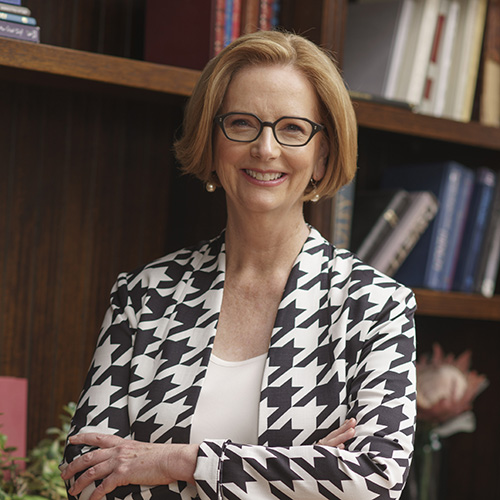
Julia Gillard
Julia Gillard was the 27th Prime Minister of Australia and the first, and only, woman to serve in that role. Since leaving office, she has dedicated her time to advocacy, governance roles, and writing.
In 2021, Julia was appointed Chair of Wellcome, a global charitable foundation based in the UK, which supports science to solve urgent worldwide health challenges. Julia is also the founder and inaugural Chair of the Global Institute for Women’s Leadership at Kings College London and Chair of its sister Institute at the Australian National University. GIWL strives for a world where being a woman is neither a barrier to becoming a leader in any field, nor a contributor to negative perceptions of an individual’s leadership.
In 2014, Julia joined the Board of Beyond Blue, one of Australia’s foremost mental health awareness bodies, and has served as Chair since 2017. As a life-long advocate for increasing access to education, especially in developing nations, Julia was Chair of the Global Partnership of Education from 2014 to 2021.
Julia wrote My Story, a memoir based on her experience as Prime Minister. Her second book, Women and Leadership: Real Lives, Real Lessons, coauthored by Dr Ngozi Okonjo-Iweala, explores the challenges women face in leadership.
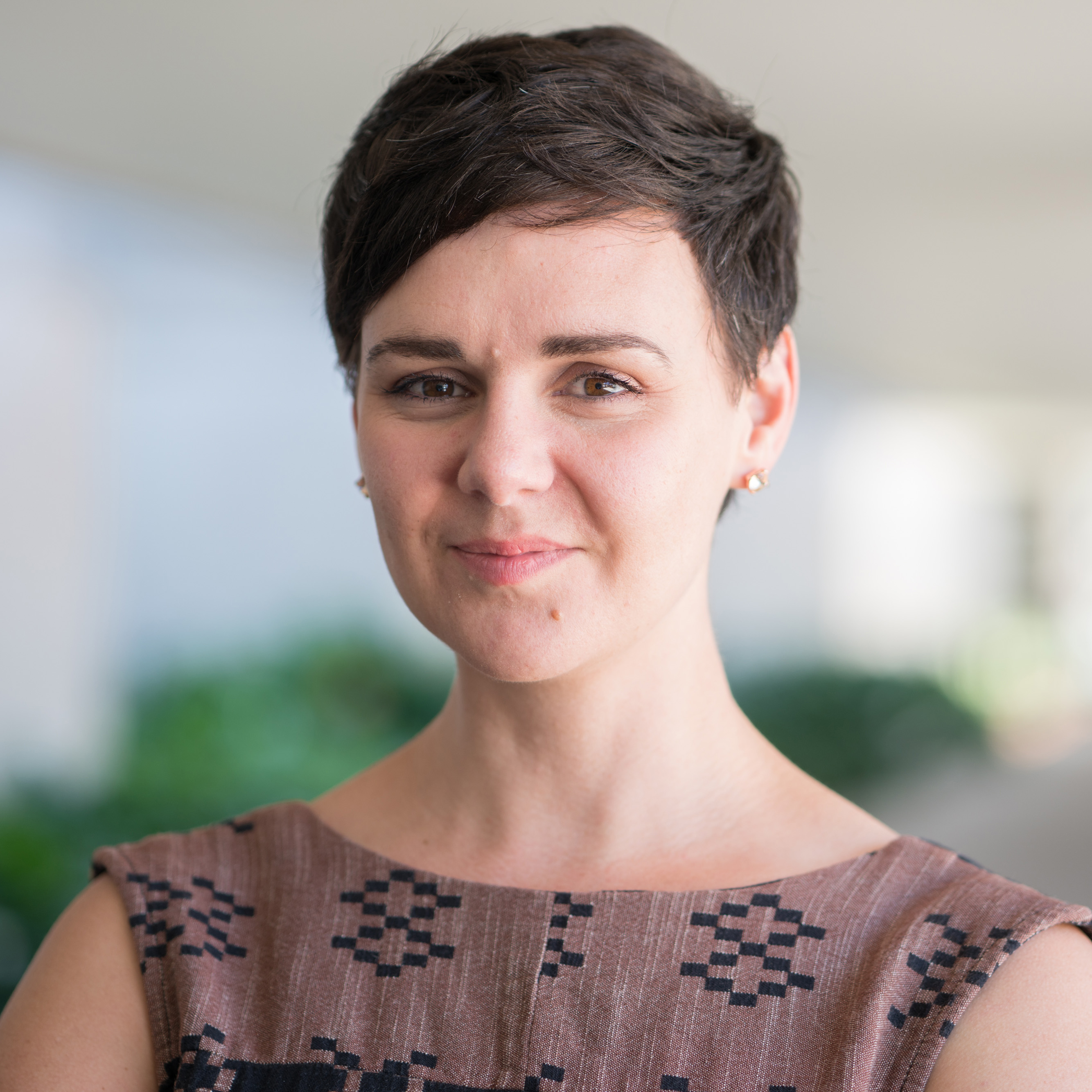
Tegan Taylor
Tegan Taylor is a health and science reporter for the ABC and co-host of the ABC’s multi-award-winning Coronacast.
She also co-hosts ABC Radio National’s Health Report and hosts the live event series and radio/podcast Ockham’s Razor. She’s been known to pop up on Radio National Life Matters, Triple J and in the Best of Australian Science Writing. In 2020, Coronacast won a Walkley Award and the Eureka Prize for Science Journalism.
Tegan was previously a producer on the ABC's national digital newsdesk, a journalism lecturer at The University of Queensland and, long ago, a newspaper reporter.
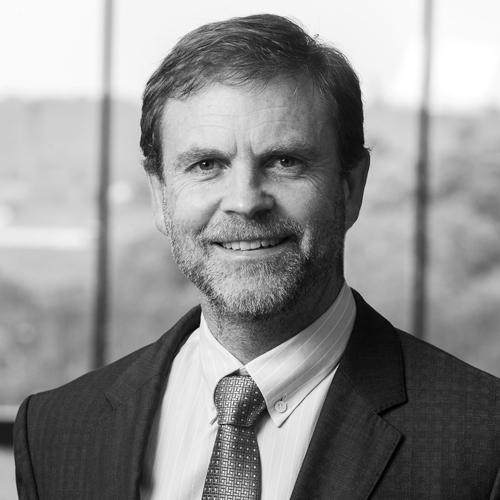
Anthony Kelleher (Vote of Thanks)
Professor Anthony (Tony) Kelleher is a clinician scientist and Director of the Kirby Institute at UNSW Sydney. He is also head of the Immunovirology and Pathogenesis program at the Kirby Institute and Principal of the Infection Immunology and Inflammation Theme at UNSW Medicine & Health Sydney. As a staff specialist at St Vincent’s Hospital Sydney, Professor Kelleher is responsible for clinical care of patients with HIV infection and autoimmune diseases as well as providing consultative input into the running of the NSW State HIV Reference laboratory.
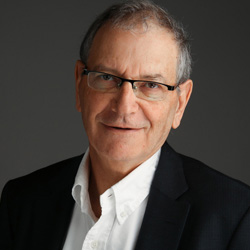
About David Cooper
Scientia Professor David Cooper AC was an internationally-renowned immunologist, researcher, and the inaugural director of the Kirby Institute at its foundation in 1986, and remained in the role until he passed away on Sunday 18 March 2018 after a short illness. He initiated ground-breaking, collaborative infectious disease research that has saved countless lives in Australia, and throughout the world. He was among the first responders when the HIV epidemic reached Australia in the early 1980s, and established Australia’s ongoing global leadership in the fight against the global HIV epidemic.
Professor Cooper received many professional accolades. He was made an Officer in the General Division of the Order of Australia (AO) in 2003, and posthumously appointed Companion of the Order of Australia (AC) in 2018. David Cooper was a dedicated and compassionate doctor to many HIV patients, and those with other immunological conditions, throughout his lifetime, and is remembered as a great friend and mentor to all who were fortunate to know him.

